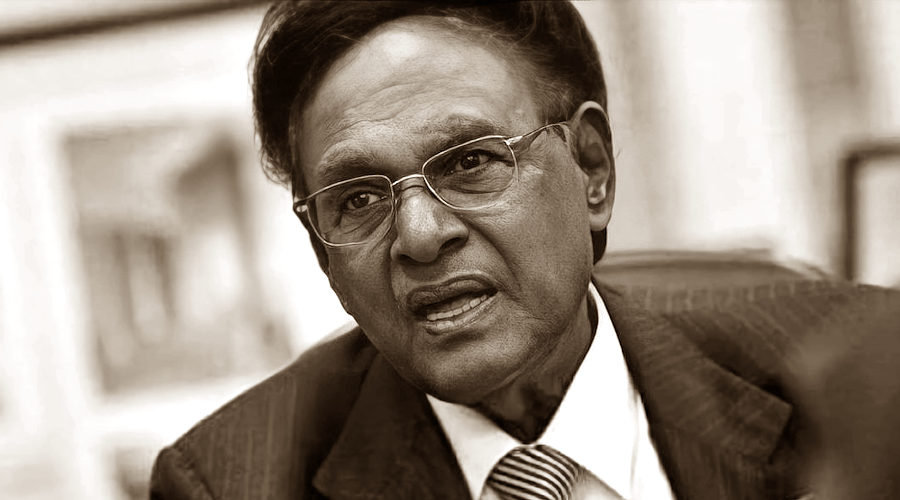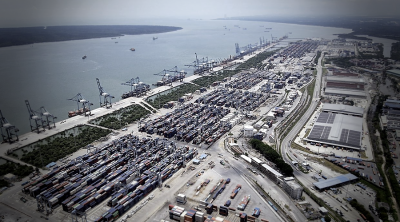
The late Tun Samy Vellu was a towering figure in Malaysia’s political and infrastructural landscape, having served as Minister of Works for over two decades.
I first encountered him while serving at a national think tank; he would often spot me at meetings and acknowledge my presence.
Over time, I became familiar with his secretaries as part of my work, however my admiration for him did not stem from any political leanings or personal admiration – it came from his sheer dedication to public service and responsiveness.
One particular incident left a lasting impression on me.
I had texted regarding an issue with the North-South Highway, expecting a delayed or bureaucratic response, as is common with many government officials. To my surprise, he replied within an hour, stating that he would check on the issue and revert.
True to his word, he called me personally within that same hour with an update, and a week later, the matter was resolved entirely.
That single act of efficiency and accountability changed my perception of leadership.
Over the years, I reported several issues to him, and not once did he fail to respond within two days.
His efficiency was unparalleled, setting a benchmark that many in power today fail to uphold.
I deeply miss working with him, as he was one of the rare ministers who treated public concerns with urgency.
It is utterly shameful to note that till today, no minister in the cabinet, no DBKL mayor, no JKR official, no local authority leader exhibits such commitment.
It is a glaring shortfall in our public administration that needs urgent rectification.
Bridging the gap: What public leaders must learn
The efficiency and responsiveness of leaders like Tun Samy Vellu should be a norm, not a rarity.
Every minister, chief executive officer of a government-linked company (GLC), and chief secretary of ministries should acknowledge and address public complaints swiftly.
The tax-paying rakyat, who fund the luxuries and privileges of these officials, deserve such urgent attention.
A few suggestions to our government officials, corporate leaders, and service providers who can take heed of this great leader’s exemplary attitude and elevate their level of service to the public:
■ Establish direct communication channels
All major agencies – including JKR, highway concessionaires, waste management companies, Tenaga Nasional, Indah Water Konsortium (IWK), SOCSO, and water management companies – must prominently display direct contact details, including mobile numbers, on their websites and in strategic locations.
This would enable real-time complaint tracking and resolution without unnecessary delays.
Singapore’s Minister of Transport has been known to personally respond to transport-related complaints via email and social media, ensuring that public concerns are swiftly addressed.
Likewise, AirAsia founder Tony Fernandes has long been accessible via social media, responding to passenger grievances directly and pushing his customer service team to act promptly.
Even the former Chief Minister of Andhra Pradesh, Chandra Babu Naidu, used to respond to public complaints personally in the newspapers, a rare feature among any world leaders.
The previous Alam Flora CEO, Mohammad Siraj, is one exceptional leader who visits the ground no matter how small the issue.
I am not joking, try reaching out to the Lembaga Lebuhraya Malaysia CEO or the SOCSO, who are public servants but it’s extremely hard to reach or even get our issues heard!
Our leaders or heads of all GLC’s involved with the rakyat must do the same in order to show their care and commitment to the rakyat, for the rakyat to have respect and appreciation to their leaders, and to establish a strong and trustworthy relationship among one another.
■ Set a clear response timeline
The former Governor of Jakarta, Basuki Tjahaja Purnama (Ahok), who implemented a digital complaint system where public grievances were addressed within a set timeframe, ensuring transparency and accountability.
We must do the same. A standard response time of no more than 24 hours should be instituted across all government and service agencies.
Complaints should be acknowledged immediately, and an estimated timeline for resolution must be communicated to the complainant.
■ Leverage digital technology for accountability
In an era where digitisation is revolutionising industries, there is no excuse for bureaucracy and inefficiency in complaint handling.
Agencies must invest in real-time tracking systems, mobile applications, and AI-driven chatbots to ensure every complaint is logged and followed up promptly.
India’s Prime Minister Narendra Modi launched the ‘MyGov’ platform, where citizens can directly report issues, and ministries are required to respond and update solutions.
Similarly, in Malaysia, some GLCs like Telekom Malaysia have introduced AI-powered chatbots that allow customers to report complaints and track resolution progress in real time.
This is an inevitable move that our government must take in order to step up and be in line with the fast progress that the nation and the world is moving into.
■ Public accountability for executives and ministers
Government ministers and GLC CEOs should be evaluated on their responsiveness and efficiency in addressing public concerns.
Those holding esteemed federal and state titles must actively demonstrate their worthiness through service.
It is not enough for these individuals to be honoured with Datukship and Tan Sri titles – they must justify their recognition by ensuring public satisfaction.
YB Fahmi Fadzil, in his tenure as Communications Minister, was highly responsive to issues regarding internet speed and telecommunications, engaging directly with the rakyat via Twitter and other platforms.
Like so, every minister and company leader should be the same.
■ Abolish the feudal mentality in public service
The time for hierarchical barriers and outdated bureaucratic traditions is over. Ministers, mayors, and CEOs must not consider themselves above the people they serve.
Public servants must be easily accessible and accountable to the rakyat, not ensconced in privilege while citizens struggle with unresolved issues.
During his tenure, our former MITI Minister Datuk Seri Mustapa Mohamed and also Minister Tan Sri Rafidah Aziz were known for their hands-on approach in engaging with business communities and responding to economic concerns directly.
This proactive stance helped bridge the gap between government policies and real-world economic challenges.
A call for reform: Enough is enough
In today’s digital age, where information and services are at our fingertips, it is unacceptable for public service to remain archaic and inefficient.
The rakyat funds the salaries, travel allowances, even the attires and luxuries enjoyed by government officials.
These officials must reciprocate with unwavering dedication, just as Tun Samy Vellu exemplified during his tenure.
Leaders who fail to respond to public complaints should face direct consequences, including public audits of their efficiency in resolving issues.
Citizens must demand transparency and accountability from those in power.
Tun Samy Vellu’s legacy is one of action, decisiveness, and genuine public service.
We may no longer have his steadfast leadership, but we can certainly push for a culture where his approach to governance becomes the gold standard.
If one man alone could win the rakyat’s appreciation, respect and admiration, our nation would surely peak at greater heights if all our leaders would emulate and follow in this one man’s steps.
It is time for a paradigm shift – where public service is defined not by status nor their titles but by the speed and sincerity with which it serves the people.

(Ravindran Raman Kutty is an active social worker.)
ADVERTISEMENT
ADVERTISEMENT








































